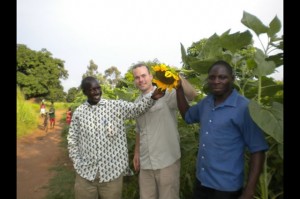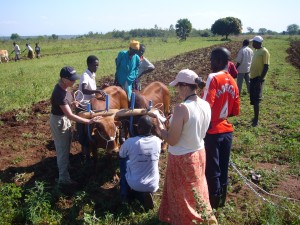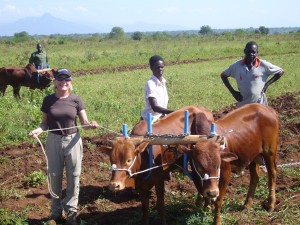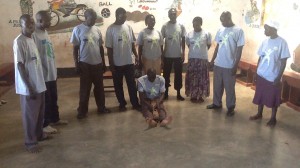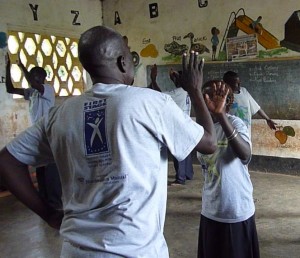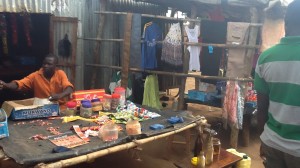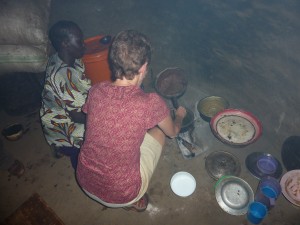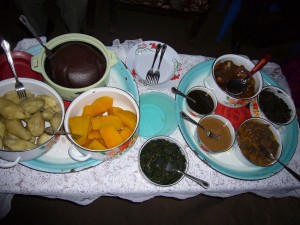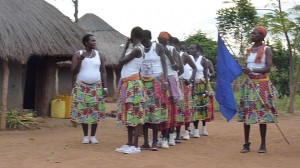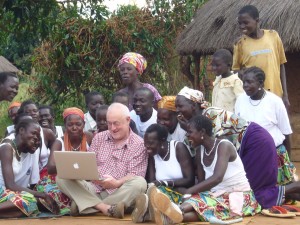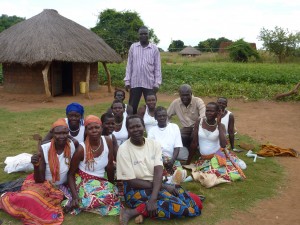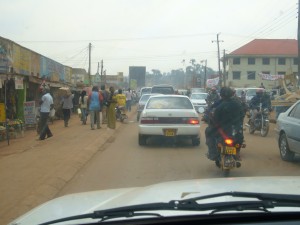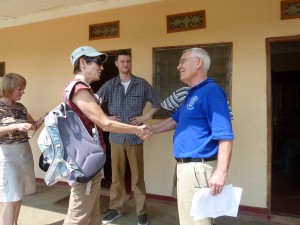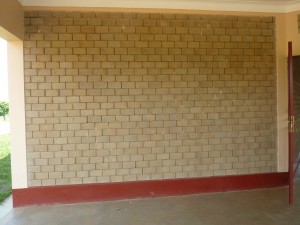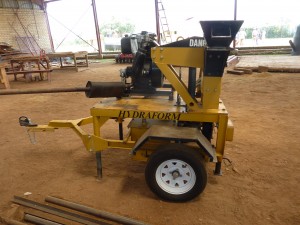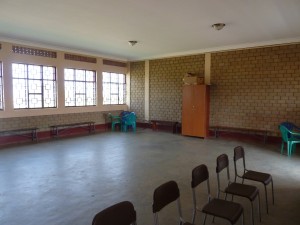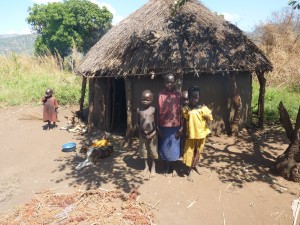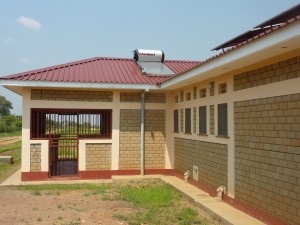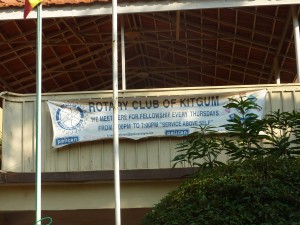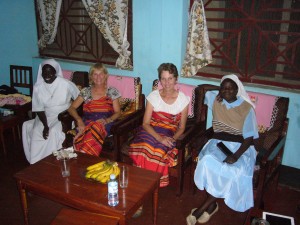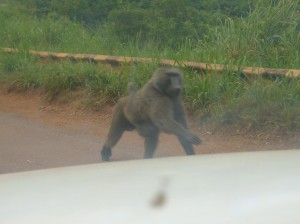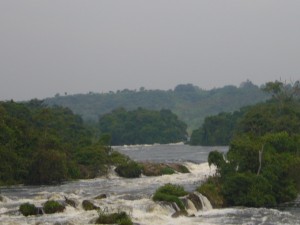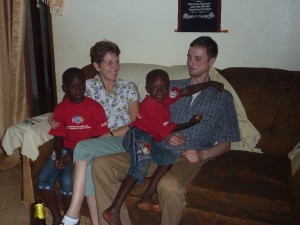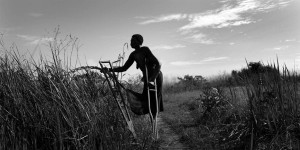In case you are new, welcome to the blog site for the relationship between Immaculate Heart of Mary Parish in Padibe, Uganda, and Three Holy Women Parish in Milwaukee, WI. Â We’re glad you visited.
One of our many efforts this year is to install an industrial scale sunflower seed expeller press to benefit the people of the entire Lamwo district of Uganda. Â Sunflower seed used to make cooking oil is a fantastic cash crop in the area, one many agencies are trying to develop. Â It is sustainable, easy to farm, and very productive. Â A typical family can increase its annual income by tenfold by farming sunflowers. Â The nearest press is 40 km away from many in Lamwo, and that press is over 70 years old, so it can and does fail at any time.
The press will be run as a cooperative that takes a percentage of the oil from each person that brings seeds for pressing, sells it, and reinvests that money back into paying for the operation of the press and also the next project, which may be a grain mill or the like. Â Eventually, this sunflower seed press will become as much an economic engine as a physical one!
We are very lucky to be partnering with students Milwaukee School of Engineering (MSOE) for the design of the building that will house the press. Â They have just come back from Padibe, fired up and ready to go back to monitor work. Â They are working on a foundation design that local contractors will bid on. Â After the local workers finish the foundations, the students and a professor from MSOE will go back to get the building started.
The people of IHM parish have agreed to provide all the bricks for the buildings as their local contribution – a significant contribution indeed! Â Making bricks is backbreaking and time consuming work, but we cannot afford to buy bricks from contractors, so it is necessary work that will pay dividends in the long run.
At this time, we have fundraised roughly half of the costs of the foundation, mortar, sunflower press itself, and peripherals necessary to start up the operation. Â We still have about $20,000 USD to cover all the costs. Â If you or someone you know might be interested in helping us, please contact Shawn at shawndalexander@gmail.com.
Thanks!
